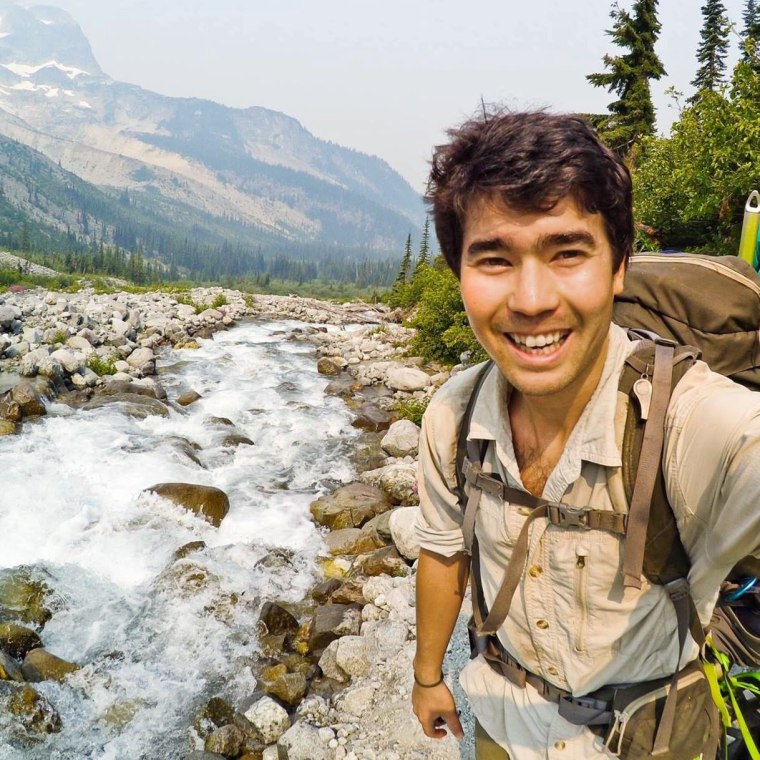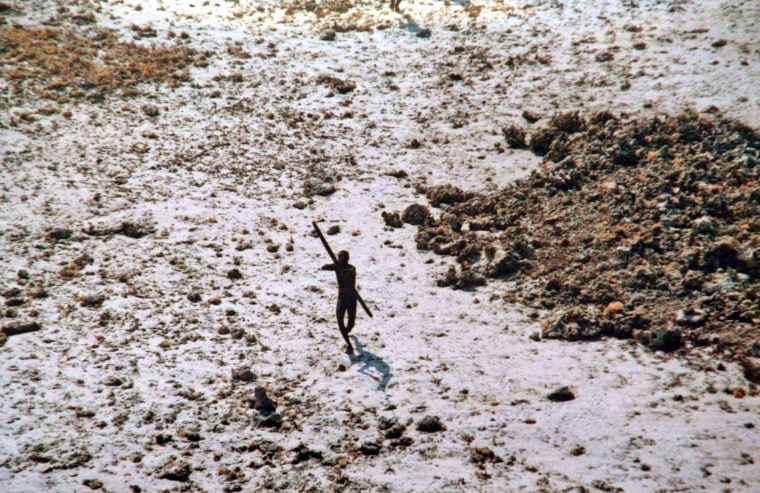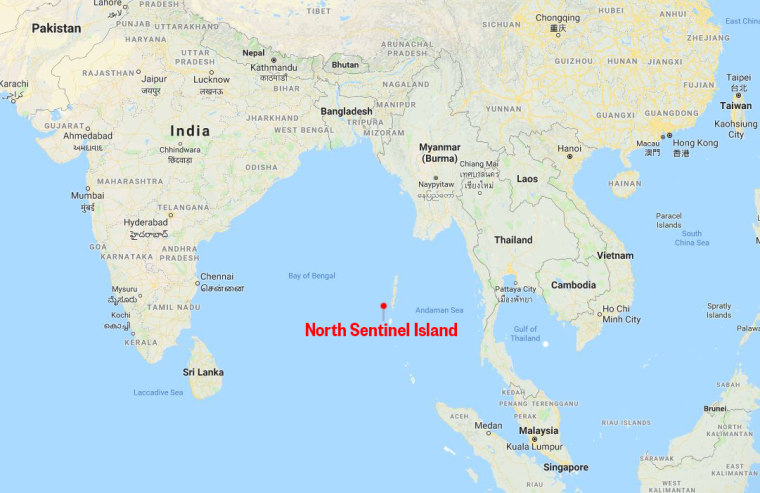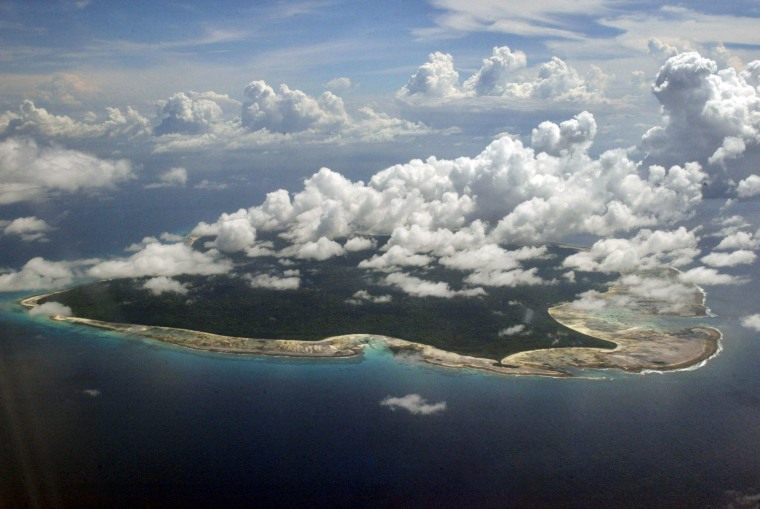An American adventurer who kayaked to a remote Indian island populated by a tribe known for shooting at outsiders with bows and arrows has been killed, police said Wednesday. Officials said they were working with anthropologists to recover the body.
John Allen Chau, 26, was identified as the victim by Jeff King, president of Washington, D.C.-based non-profit International Christian Concern. Chau was not a part of the non-profit, but he said the missionary was traveling in a group of other missionaries and adventurers.

"My understanding is that he was there to bring Christianity to this remote tribal group," said King. "If you’re a believer, your worldview is that non-believers are lost and that their only hope is Jesus."
Police officer Vijay Singh said the killing apparently occurred Saturday on North Sentinel Island, part of the Andaman and Nicobar Islands.
The Sentinelese people are resistant to outsiders and often attack anyone who comes near, and visits to the island are heavily restricted by the government.
King said that Chau likely had read up on the tribespeople and how they react to outsiders, but "guys understand the risks and there are willing to put their lives at risk."
Dependera Pathak, director-general of police on India's Andaman and Nicobar Islands, said seven fishermen have been arrested for helping the American reach North Sentinel Island.
Chau was apparently shot and killed by arrows, but the cause of death can't be confirmed until his body is recovered, Pathak told The Associated Press.
Chau arrived in the area on Oct. 16 and stayed in a hotel while he prepared to travel to the island. It was not his first time in the region: he had visited the Andaman and Nicobar Islands in 2015 and 2016, Pathak said. North Sentinel is in the Andaman Islands at the intersection of the Bay of Bengal and Andaman Sea.
Chau organized his visit to the island through a friend who hired seven fishermen for $325 to take him there on a boat, which also towed his kayak, Pathak said.

The American went ashore in his kayak on Nov. 15 and sent the boat with the fishermen out to sea to avoid detection, Pathak said. He interacted with some of the tribespeople, offering gifts such as a football and fish. But the tribespeople became angry and shot an arrow at him, hitting a book he was carrying, Pathak said.
After his kayak was damaged, Chau swam back to the fishermen's boat, which was waiting at a prearranged location. He spent the night writing about his experiences on pages that he then gave the fishermen, Pathak said. He set out again to meet the tribespeople on Nov. 16.
What happened then isn't known. But on the morning of the following day, the waiting fishermen watched from a distance as the tribesmen dragged Chau's body. They left for Port Blair, the capital of the Andaman and Nicobar Islands, where they broke the news to Chau's friend, who in turn notified his family, Pathak said.
Police charged the seven fishermen with endangering the life of the American by taking him to a prohibited area.

Chau had lived in Oklahoma, where he attended Oral Roberts University, and in southwestern Washington state, where he attended Vancouver Christian High School. Phone messages left with some of his relatives were not immediately returned Wednesday.
One of Chau's friends, Casey Prince, 39, of Cape Town, South Africa, said he met the adventurer about six years ago, when Chau was a manager on the soccer team at Oral Roberts University in Oklahoma. Chau and others on the team traveled to South Africa to volunteer at a soccer development and social leadership program Prince founded, Ubuntu Football Academy.
Since then, Chau had been back to visit Prince and his family or tutor and coach boys in the program about four times. Most recently, he was there from mid-September to mid-October, Prince said.
Prince described him as easy to like, kind, joyful and driven by twin passions: a love of the outdoors and fervent Christianity.
"He was an explorer at heart," Prince said. "He loved creation and being out in it, I think having probably found and connected with God that way, and deeply so."
Prince declined to discuss what Chau had told him about his plans for traveling in India or the islands, saying instead he wanted to focus his comments on who Chau was. But he said Chau, who previously spoke of having been bitten by a rattlesnake, accepted the dangers that came with his adventures.
"If he was taking a risk, he was very aware of it," Prince said.
Kathleen Hosie, spokeswoman for the U.S. Consulate in Chennai, the capital of India's southern Tamil Nadu state, said she was aware of reports concerning an American in the islands but could not comment further due to privacy considerations.
Survival International, a global advocacy non-profit for tribespeople, described the Sentinelese as an “uncontacted” community of between 50 and 200 people who “vigorously reject all contact with outsiders.”
“This tragedy should never have been allowed to happen. Indian authorities should have been enforcing the protection of the Sentinelese and their island for the safety of both the tribe, and outsiders," said Survival International director Stephen Corry.
"The Sentinelese have shown again and again that they want to be left alone, and their wishes should be respected," Corry said, adding that they could have also been exposed to deadly pathogens that they are not immune to.


